How Maryland Quakers Challenged Mass Incarceration
We started out as a 2014 book club between Annapolis (Md.) Meeting and a neighboring, mostly African American Episcopal Church. Our catalyst was the last chapter of the book The New Jim Crow: Mass Incarceration in the Age of Colorblindness by Michelle Alexander, which effectively asked readers, “What are you going to do about this problem?”
The book club’s first try was unsuccessful: we requested our local legislators to sponsor a bill called “Taskforce to Reduce Incarceration in Maryland” (TRIM). We were told there was no money in the budget for yet another taskforce. As we sorrowfully left the hearing room, other advocates from around the state approached and said, “This is a great proposal. You should form a larger group with members from around the state.”
Forming a Statewide Organization
At the Annapolis meetinghouse, not far from the state capitol building, we held an organizational meeting and were surprised to find support from other Quaker meetings, along with “returning citizens” with personal experience in our prisons and their family members. There were also many professional advocates, including American Friends Service Committee (AFSC), the American Civil Liberties Union (ACLU), and the National Alliance for the Advancement of Colored People (NAACP). In 2015, this expanded group chose Maryland Alliance for Justice Reform (MAJR) for its name, and a technologically talented Friend set up an informative website at Ma4jr.org. An all-volunteer group, our mission would be “working to end unnecessary incarceration and to build strong, safe communities.”
Recognizing that we would make the most progress if we were able to work on a bipartisan basis, we were fortunate to recruit two influential honorary co-chairs: a former governor, Republican Robert Ehrlich, and a former chief appellate judge, Democrat Joe Murphy.
Speaking truth to power, in 2015 MAJR asked our state’s house speaker and senate president to support TRIM, using a justice reinvestment model other states have found useful to dedicate savings from reducing prison size to fund alternatives to incarceration. Happily, our late Senate President Mike Miller agreed to serve as primary sponsor for the bill.
Over the next two years, with Miller’s leadership, the Maryland General Assembly undertook a comprehensive study of the state’s criminal justice system. The Justice Reinvestment Act of 2016 eliminated many mandatory incarceration penalties, reduced the maximum sentences for other crimes, and expanded drug treatment for addicts by creating a fund for new local prevention programs.
We recognized that we received much more attention as a statewide organization than as a two-church book club. We benefited from personal connections and well-focused advice from a former governor, two former judges, and a retired director of the state probation office.
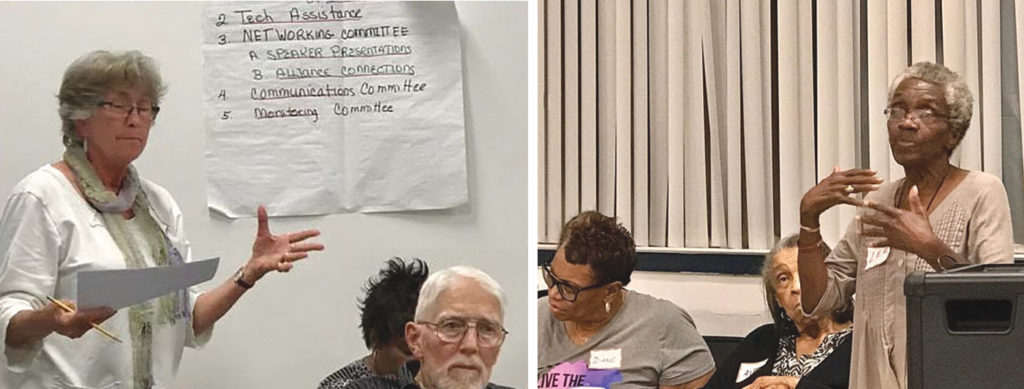
Scenes from a 2017 MAJR general meeting. Photos courtesy of authors.
Building Bridges with Other Advocates and Impacted People
The Maryland Quakers who helped found MAJR came from mostly White meetings and, based on our background in criminal justice, started with some clear ideas about how the system needed improvements (fewer mandatory sentences, more opportunities for rehabilitation).
But using non-hierarchical Quaker process in all our meetings, we soon heard the voices of more People of Color and more returning citizens recently released from our state’s prisons, along with their families. Members from other Maryland advocacy groups persuaded MAJR to lend its support to existing initiatives that had struggled for traction in past years. Some members of these groups were invited to join MAJR and became members of our executive committee, helping us to make better-informed policy decisions.
We also sent MAJR representatives to meet with other secular and faith-based organizations. Over a few years, MAJR became better representative of concerned citizens from all around the state, and better informed about the issues of greatest concern to the people most impacted by our criminal justice system.
One important lesson learned from these allies was the recognition that we should not attempt to reinvent the wheel on any policy matter where other advocates already had laid the groundwork and begun a policy campaign. Today, MAJR participates in roundtable (or Zoom) sessions with other advocates, seeking to coordinate mutual support for policy campaigns months before our annual legislative sessions begin.
From 2017 through 2019, MAJR saw way open for sharing initiatives with other advocacy groups on a number of fundamental issues. In 2017, we supported rule changes for Maryland courts to reduce pretrial detention caused by cash bail bonds. The next year we advocated for bills supporting pretrial release programs (in lieu of jail or cash bail) and educational needs assessments at the beginning of each prisoner’s sentence. In 2019, we supported a bill that added mental health assessments to substance abuse assessments for all held in pretrial detention.
Since 2015, MAJR has helped many good bills pass, blocked many bad ones, and helped override several governor vetoes.
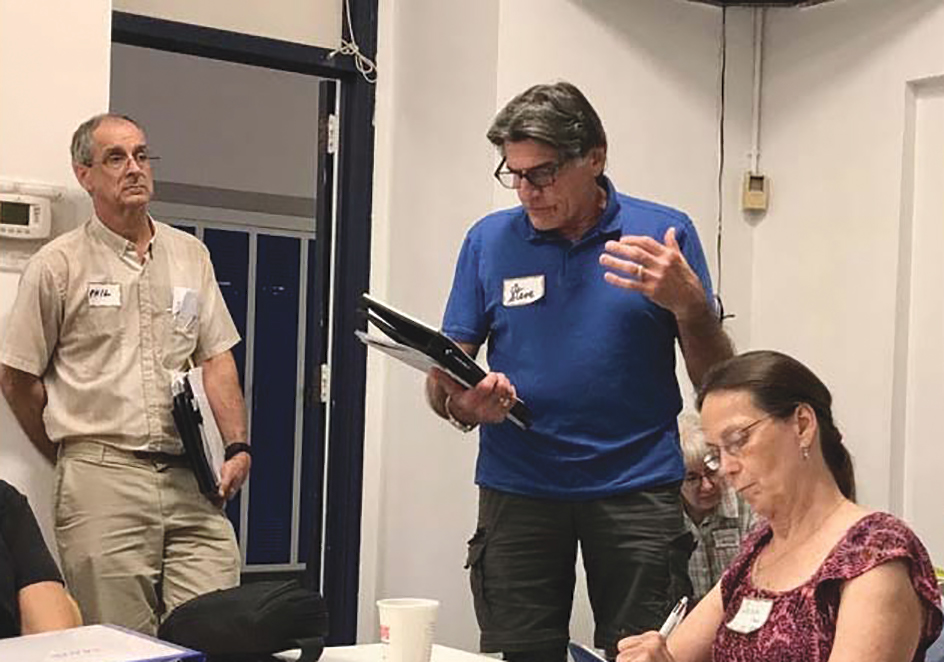
The COVID-19 Pandemic Shuts the Door but Opens a Virtual Window
In early 2020, MAJR and other Maryland advocates were having a good year. Ten supported bills were passed, including a huge school bill that promised to end the school-to-prison pipeline with better funding in poor school districts, more early education, and alternatives to disciplinary suspension. Progress came to an abrupt halt when COVID-19 restrictions shut down the legislature’s normal 90-day session almost one month early.
Looking towards 2021, Maryland legislative leaders decided that no citizens would be permitted into the legislative buildings to meet with legislators, to testify orally at hearings, or even to deliver written testimony. These restrictions would completely block MAJR’s practice—learned over the previous six years—of holding large face-to-face receptions and many constituent meetings with legislators.
At the same time that legislators adopted their COVID safeguards, MAJR found its own electronic alternatives: with Zoom technology, all MAJR committees continued to meet, and panel discussions attracted hundreds. With automated alerts using a digital advocacy platform called Muster, MAJR members sent over 7,000 emails targeted to key legislators. Despite the pandemic, this may have been our members’ highest level of contacts ever. In 2021, a number of governor vetoes have been overturned, and 17 pieces of our priority legislation—a new record—moved to the governor’s desk.
Key 2021 legislation successfully supported by MAJR included police reform with limits on the use of force, public disclosure of police misconduct records, civilian review of police discipline, and limits placed on purchasing military equipment.
MAJR’s “Front Door” group, which addresses the causes of incarceration, helped win passage of long-sought legislation: limits on fees for pretrial supervision and better funding for mobile crisis teams.
Our “Behind the Walls” group helped create legislation calling for new correctional education incentives, retroactive review possibilities for juvenile convictions, and removal of the governor from the parole process. MAJR’s last Muster alert in 2021 urged the governor not to veto the parole bill; 300 citizen emails blasted him with this message. The governor did not sign the bill, but we hope to override the veto next year.
MAJR’s “Back Door” group, which addresses the causes of re-incarceration, helped extend the state’s Partial Expungement Commission and continues to pursue a statewide Reentry Council, agreed to by Maryland Correctional Services but delayed by the pandemic.
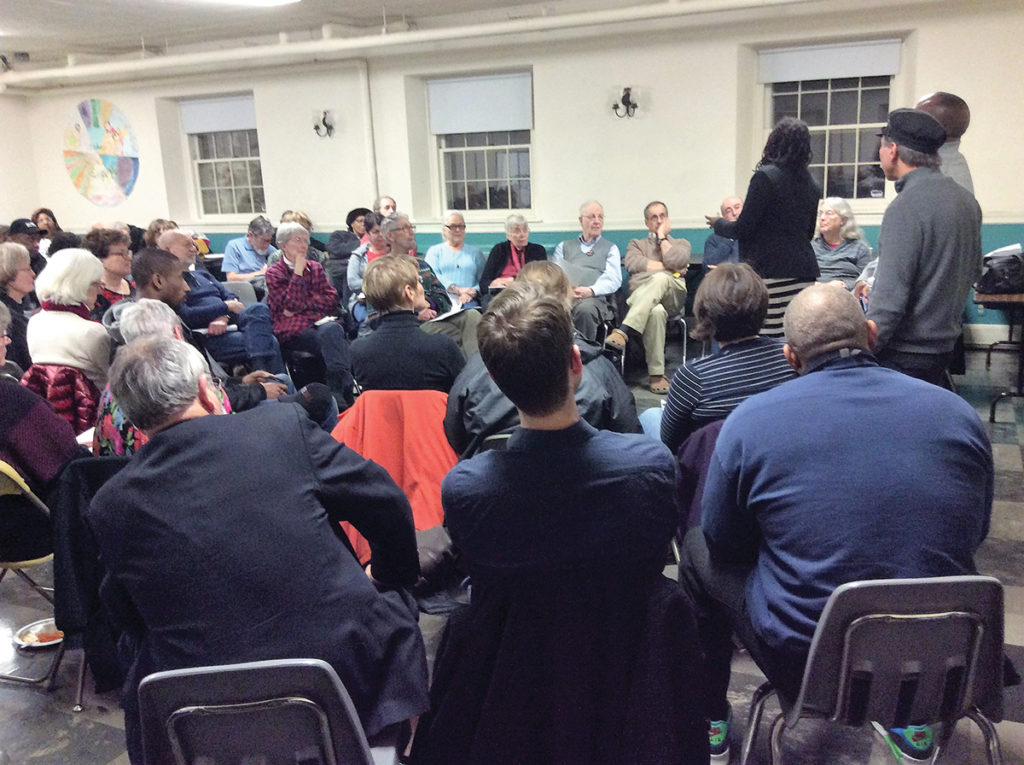
What Happens Next
Many unresolved issues still need MAJR’s attention. For example, do you know about the felony murder rule? Do you know you can receive a life sentence for murder without killing anybody? Did you know that, across the United States, over 95 percent of criminal convictions result from plea bargains rather than trials? Are you aware of the coercive power of your prosecutors who offer plea bargains even to the innocent? Did you know that only a small percentage of prisoners actually are permitted to gain the education and job training that could reduce their odds of recidivism from 40 percent to 10 percent?
The focus of these challenges is at the state, not the federal, level. The majority of U.S. mass incarceration occurs in state prisons, which tripled in size between the 1980s and the early 2000s due to tough-on-crime policies that didn’t make us safer. These policies hit African American and other minority communities three to five times harder than White communities.
Advocacy software like Muster is a great tool for the citizens of Maryland to get to know their representatives, and for those representatives to get to know their constituents. Quakers and other advocates need to prioritize and to use tools like this one wisely. We need to keep our members involved and make it easier for them to engage their legislators. Such conversations, whether live or virtual, feed relationships, and those relationships lead to better understanding. As the Brookings Institute observed:
Civic engagement is the glue that holds self-government together . . . no matter which political party happens to be in power. . . . We must learn and practice the skills of civic participation beginning with voting and moving onto legislating, speaking out, and building coalitions to solve problems on the local, state, and federal levels.
Citizen participation is the heart of representative government. If we don’t speak, we allow the voices of lobbyists from the staunch and protective segments of our society to get the attention.
If Quakers are inactive, we enable injustice to continue. As John Stuart Mill observed, “Bad men need nothing more to compass their ends, than that good men should look on and do nothing.” We urge Friends around the United States to take action.


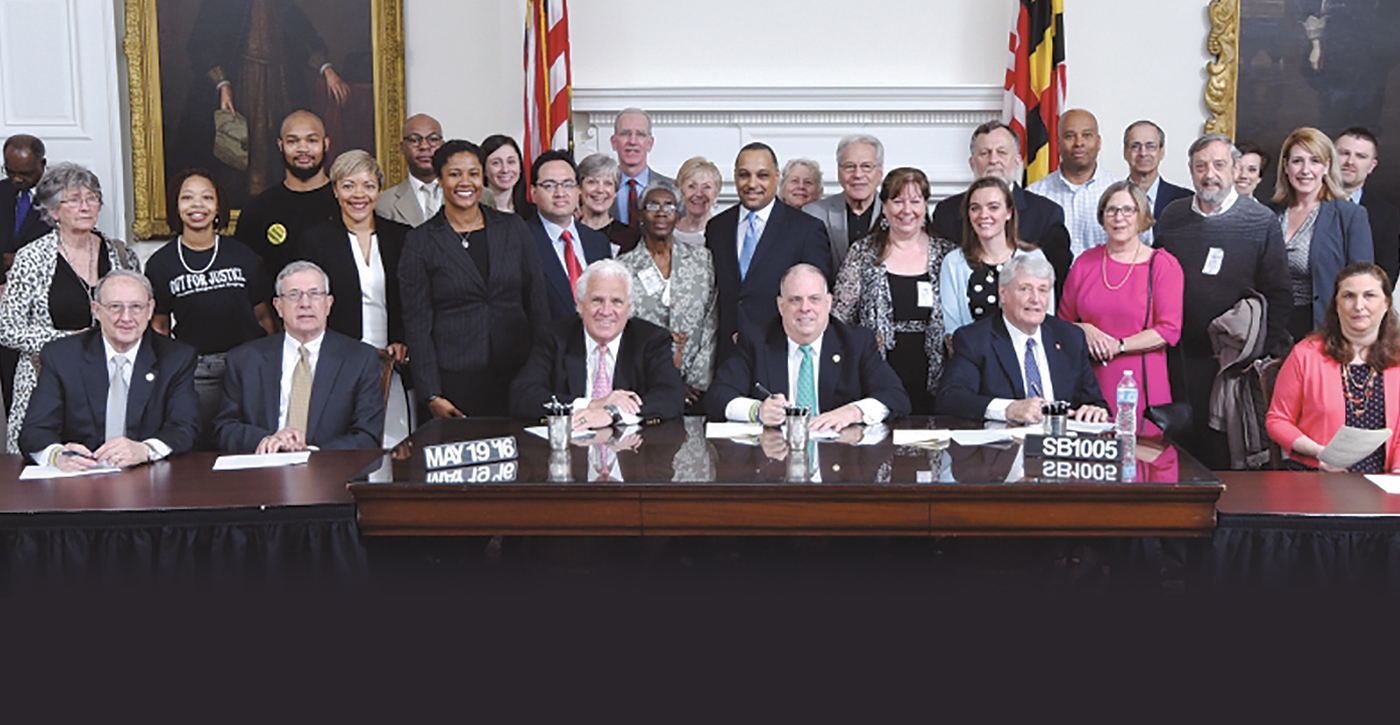
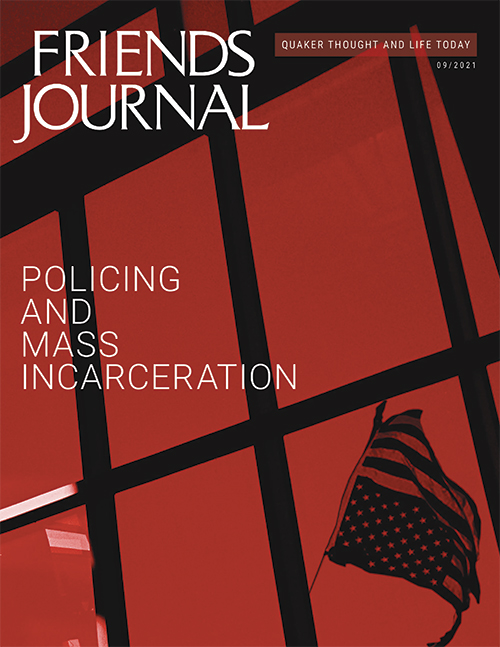
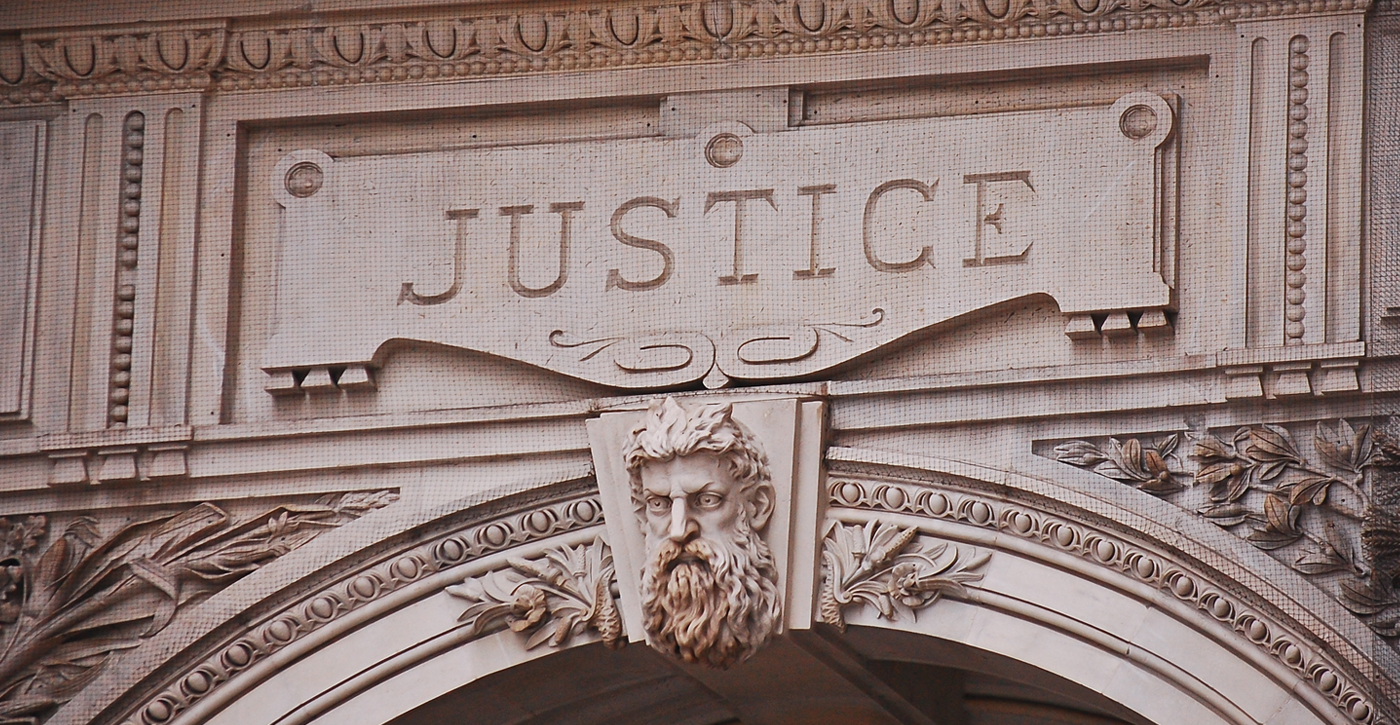
What an inspirational article!
Kudos to you for all this dedicatd workIjamsI over the past seven years!